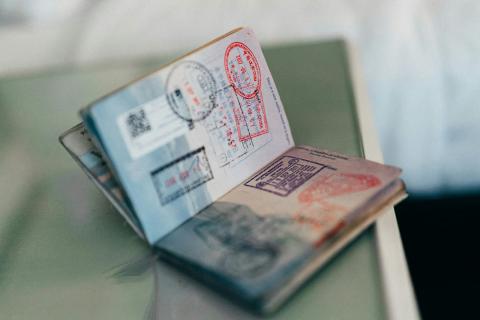A deep political and social fracture continues more than two months after civil unrest engulfed New Caledonia. The bitter confrontations that began in May between French police and pro-independence activists over electoral reforms laid bare increasing polarisation between loyalists and separatists in this small island society of about 290,000 people.
My conversations with ordinary citizens on both sides of the political divide in New Caledonia this month revealed deep concerns of many about the loss of the middle ground in the territory’s politics, along with a yearning for moderate leaders to regain the upper hand.
The protests by mainly pro-Independence Kanaks were driven by anger at not having given their consent to reforms voted for by the French parliament, and the potential decline of their electoral influence as a result. The reforms were suspended by President Emmanuel Macron and effectively cancelled in their present form when parliament was dissolved prior to the French national election in July. But the damage had been done. New Caledonia’s President Louis Mapou said that France’s unilateral move had “reopened a wound that had taken so long to heal”.
A major trigger of conflict in the 1980s was, as it is today, measures by France to change the population and voter demographics in favour of the Pro-France electorate. Such policies, for many Kanaks, negate the joint pledge of peace, equity and increasing autonomous governance forged by the 1998 Noumea Accord. It was following the third referendum on independence in 2021, when the Kanak boycott during Covid-19 resulted in a pro-France landslide of 96.5 per cent after two much closer earlier votes, that political trust began to erode.
The positions of both political camps have since hardened.
After the violence erupted in May, thousands of French security personnel have deployed to the islands, with the arrest and transfer this month of eight pro-independence leaders to jails in France. Kanak leaders, such as Daniel Goa of the Caledonian Union, called it a return to colonial policies. Yet there is support from ardent loyalist politicians, including Sonia Backès, who in June called for France take control as the territory was “no longer fit to lead”. In July, Backès went further, in suggesting the territory should be partitioned, claiming that the project of Kanaks and non-Kanaks living together had failed.
It is also increasingly clear that, as grievances continue, international support of moderate political leaders in New Caledonia is imperative.
There is a sense of despair among residents of communities in Noumea who found themselves under siege. “What we lost is our hope”, one New Caledonian of French heritage told me. “I think this hope of having a new framework in which we could live in a peaceful country. We lost that.”. She believed that hardline loyalists were going too far and lamented diminishing moderate pro-Independence voices.
Similarly, emergence of the uncompromising Field Action Co-ordination Cell (CCAT) from the pro-independence Caledonian Union party, a key organiser of recent protests, has been a source of friction with moderate elements of the wider Kanak and Socialist National Liberation Front (FLNKS) coalition.
The FLNKS national congress in mid-June was cancelled after disputes about CCAT attending. Then the home of moderate FLNKS leader, Victor Tutugoro, was burned down. That was a warning to Kanak leaders seeking too much compromise, one New Caledonian said.
A real fear of people who want the “common destiny” to survive is that intimidation on both sides will succeed and fear will silence those who could speak and act for it. A long-term French resident said that “many people here want peace, but they don’t speak out in public.” And a Kanak woman, who promotes Kanak culture, wanted conciliation. “I believe in the ‘common destiny’, that we should all live together. I want there to be a balance, equal political power for Kanaks and non-Kanaks,” she told me in the capital.
There is also generational pressure. The tempered voices of older pro-Independence leaders are being challenged by a more aggressive younger generation. Youths who have lost patience with lack of change in their lives made up a large proportion of people recently demonstrating on Noumea’s streets.
As unrest continues with the destruction of churches and a Kanak monument in recent days, regaining the broken momentum of dialogue and trust is of supreme urgency.
Optimism has emerged from the French national election, which wasn’t initially welcomed by many New Caledonians striving to cope with the aftermath of unrest. Yet a record number of voters turned out. Seventy one percent of voters in the territory cast ballots in the second round, compared to average turnouts in past elections of 35-40 percent, suggesting public confidence in the electoral process. And it has produced two new members for New Caledonia in the French National Assembly in Paris representing both sides of politics: Loyalist, Nicolas Metzdorf, and Kanak leader, Emmanuel Tjibaou. Together they have the potential to deliver broader more representative views of the territory to the French parliament. Both have publicly called for peaceful dialogue between all political parties to overcome the current crisis.
It is also increasingly clear that, as grievances continue, international support of moderate political leaders in New Caledonia is imperative. The most promising initiative, to date, is the announcement by the Pacific Islands Forum of a delegation of three Pacific Island nation Prime Ministers who are expected on the ground imminently to galvanise talks toward a resolution.


